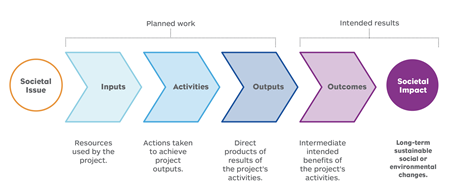Philanthropy is uniquely placed to make an impact on the challenges facing our community.
Complementing the roles of business and government, philanthropy can support innovation and the capacity of the charitable sector in a distinct way. Lord Mayor’s Charitable Foundation believes that philanthropy can be the venture capital provider for the charitable sector; supporting new ideas and testing solutions to the big social and environmental challenges of the day.
The Foundation's theory of philanthropy was first developed in conjunction with Centre for Social Impact New Zealand in 2014 and was updated in 2019.
To maximise its impact and demonstrate its theory of philanthropy, the Foundation:
-
Uses research and evidence to guide and inform its work;
-
Utilises all the tools in the philanthropy toolbox where possible;
-
Engages its community and donors;
-
Supports innovative solutions to its priority issues through responsive and proactive grants, as well as participation in collaborations;
-
Is prepared to be an early or first funder to support charities that demonstrate new solutions;
-
Helps leverage other support from funders, government, and other partners;
-
Believes in building the organisational capability of charities, including network and collaboration building, increasing technological capability, and diversifying funding sources via social enterprises and impact investment.
An Impact Framework guides the Foundation’s measurement and evaluation of its work.
Lord Mayor's Charitable Foundation
Impact Framework

This iterative process begins with identifying the critical issues affecting the community through research and annual reviews of the Foundation’s Impact Areas.
The Foundation then identifies and develops projects which have positive impact potential through responsive and proactive grants, as well as other elements from the Philanthropy Toolbox.
A project logic model is used to monitor progress of projects and initiatives. This is a collaborative process between the Foundation and each grant recipient to increase the shared impact on the challenges the Foundation has prioritised. Each year, the Foundation also leads several collaborative Initiatives focused on demonstrating and testing solutions to high priority challenges.
Lord Mayor's Charitable Foundation
Project Logic Model

The model includes defining project-specific outputs and outcomes that align with our grant recipient’s and the Foundation’s own impact objectives. Grant recipients report on activities, outputs, outcomes, targets and budget expenditure in Progress and Acquittal Reports.
Lord Mayor’s Charitable Foundation recognises that learning is an important part of the innovation process and is committed to sharing project findings and reports with its Board or Management through Impact Reporting and with the broader community via its Knowledge Hub, events and other publications.
The Knowledge Hub features Stories of Impact which profile projects supported by the Foundation that have demonstrated impact beyond expectations. These projects have successfully implemented innovative solutions to social or environmental challenges. They also provide tangible examples of the Foundation’s approach to philanthropy, as outlined on this page.
Where potential is demonstrated, the Foundation actively identifies opportunities to increase impact. This can include follow-on grants, assisting in leveraging in other funders (government funding, impact investment and philanthropic funding) or, in the case of social enterprise, scaling to benefit from social procurement.
Our work on impact reporting continues to develop, contact the Grants Team for more information on our Impact Framework and reporting.
Read our latest Stories of Impact
Deep-dive into the life-changing outcomes arising from the Foundation's support.